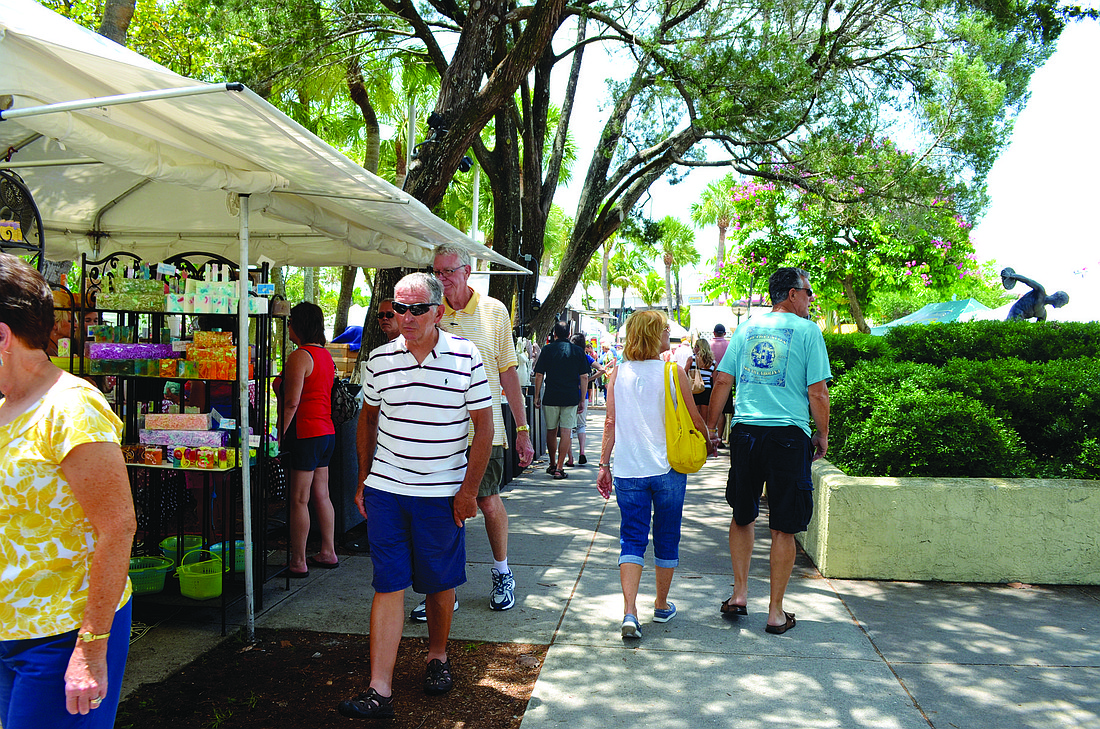- November 5, 2025
-
-
Loading

The city attorney’s office has been working to craft an ordinance that establishes regulations for special events since last year, and St. Armands Circle leaders have been watching the process with rapt attention.
Although the end appeared to be near, the saga will continue for both parties for a while longer. On Monday, the City Commission held a public hearing regarding the special events rules but directed staff to make further tweaks to the ordinance before bringing it back for consideration again.
For stakeholders on the Circle, Monday’s meeting was a step in the right direction. Several people spoke during the public hearing about how the proper management of events in the park was critical to the success of businesses and the quality of life for residents in the area. Marty Rappaport, St. Armands Business Improvement District board member, compared the need for a favorable events ordinance to the need for additional parking near the Circle.
“Of equal importance (to additional parking) is the adoption of a special events ordinance that ensures the type and character of events will perpetuate the success and worldwide recognition we have all worked so hard to make possible,” Rappaport said.
City Attorney Robert Fournier presented several options within the ordinance for managing events on the Circle. He said decisions on the length of an events blackout during the height of season and on the number of events allowed per month outside of the blackout period were matters of policy that were at the commission’s discretion.
On both counts, things appeared to go favorably for the St. Armands representatives at Monday’s meeting. They requested a blackout period from February to April — slightly longer than the temporary moratorium in place earlier this year. They also asked for a cap of two events per month except for January and October, during which events traditionally held during the blackout period could be rescheduled. The consensus among commissioners was that both requests were reasonable.
The stakeholders at Monday’s meeting pushed for more oversight over events in the park, as well. Those people successfully campaigned for protection for events with history in the community. Rather than allow anyone to apply for an events permit 364 days in advance, commissioners endorsed a clause that would allow events held within the previous year to apply for the same dates 375 days in advance.
When the ordinance comes back for consideration in September, commissioners said they hoped the new rule would allow successful events to have continuity from year to year.
“I’ll just use the holiday night on St. Armands,” Commissioner Shannon Snyder said about long-standing events getting squeezed out. “Nothing prevents the Grinch from standing at City Hall 365 days before just to prove they can do it.”
In addition, Julia Bales, speaking on behalf of the St. Armands Residents Association, asked commissioners to put in a formalized appeals process in case merchants, residents or landowners objected to a potential event.
“If the residents believe the event isn’t appropriate, what is our avenue of recourse?” Bales said. “We respectfully request a process be included be included for appeals.”
Fournier said it was possible to build in a 30-day period between when groups on St. Armands are notified of an event and when an events permit is issued to allow potential issues to be raised. Beyond that, however, he was reluctant to institute a formal appeal process for applicants or any other party, because he wanted the criteria established in the ordinance to remain objective and straightforward.
In response to a request that no events go forward without the landowners, merchants and residents groups signing off on them — which mirrors an informal policy in place before 2009 — Fournier said it would represent an unlawful delegation of legislative authority from the commission.
“I understand why (St. Armands stakeholders) would want it; I’m sympathetic to it,” Fournier said. “But I think if we’re going to do the ordinance and codify it, then they need to trust the special events office.”
Contact David Conway at dconway@yourobserver.com